What is the suitable roasting degree of Kenyan coffee beans? the difference between shallow and deep roasted coffee beans
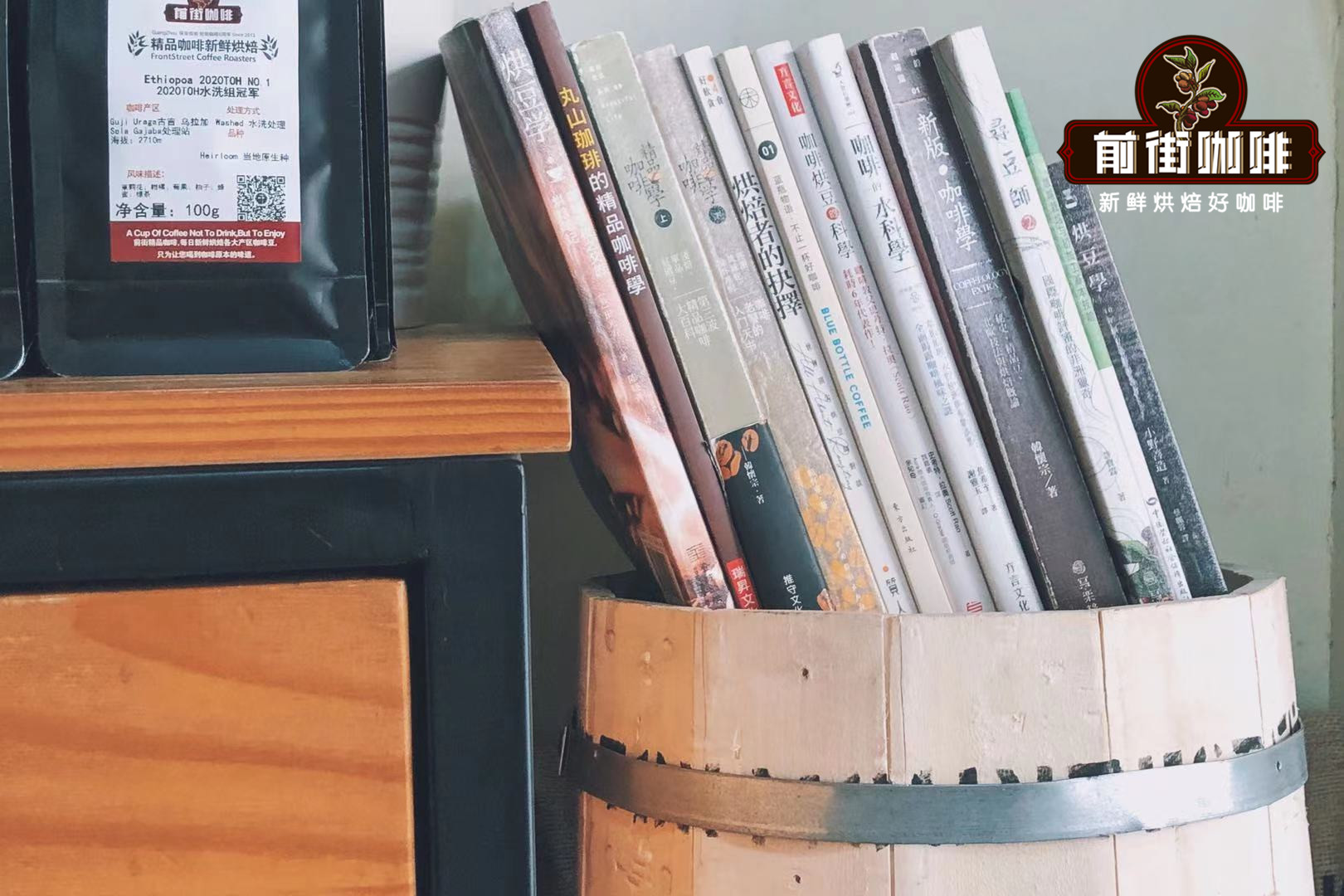
Professional coffee knowledge exchange more coffee bean information please follow the coffee workshop (Wechat official account cafe_style)
Kenya is also one of the most distinctive African coffee producing areas, with a pleasant virgin fruit, Umei acid, which is different from citrus citric acid in neighboring Ethiopia, so it also has a place in the boutique coffee market. what are the conditions that make the flavor of Kenyan coffee beans so distinctive? Well, in this next article, Qianjie Coffee will give you popular science about the factors affecting the flavor formation of Kenyan coffee beans.
Regional conditions of coffee cultivation in Kenya
After all, coffee beans are crops, so their flavor characteristics must be closely related to its planting conditions, such as soil, climate, altitude and other issues will determine the direction of a coffee bean flavor. Kenya is located in eastern Africa, the equator runs through the central part of the country, and the Great Rift Valley stretches north and south. It is bordered by Somalia to the east, Tanzania to the south, Uganda to the west, Ethiopia and Sudan to the north, and the Indian Ocean to the southeast. There are many plateaus in the territory, with an average elevation of 1500 meters. The central peak of Kirinaga (Mount Kenya) is 5199 meters above sea level and the top of the mountain is covered with snow, making it the second highest peak in Africa.
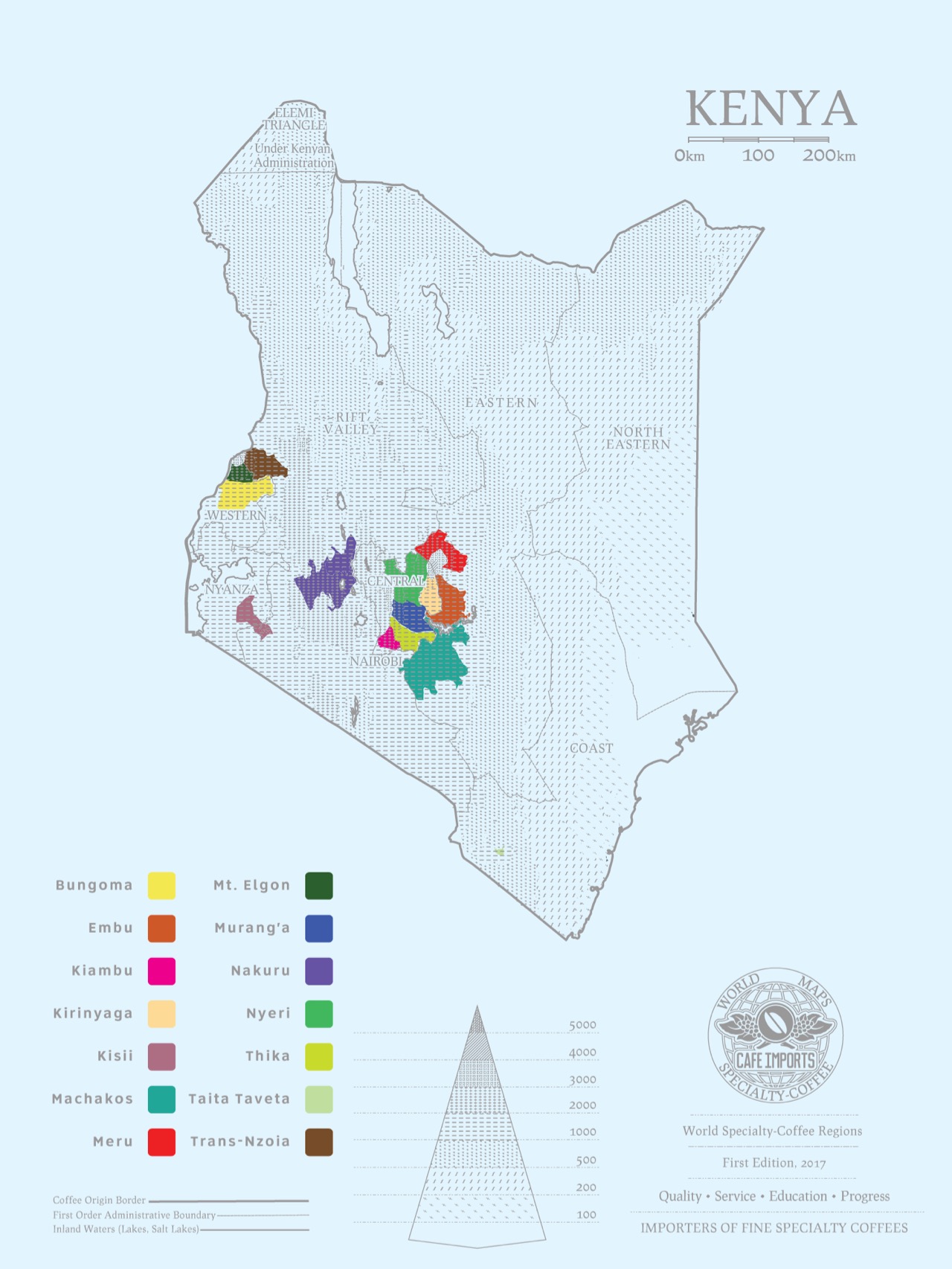
The equator runs through Kenya, and the border is just within ten degrees of north and south latitude. Belonging to tropical producing areas, there are two rainy seasons every year, with two harvests, with 60% concentrated from October to December and another 40% from June to August. Coffee is mainly grown in volcanic areas from the capital Narobi to the mountains of Kenya at an altitude of 1600-2100 meters. This height is suitable for the development of coffee bean flavor, because the mountain temperature is lower, the growth is slow, the aroma components of coffee beans have been fully developed, the sour taste is more obvious, and the texture is harder. This fertile moonbend-shaped coffee area is the main producer of Kenyan boutique beans.
From the description of coffee in Shangqian Street, you can know that Kenya's coffee producing areas are indeed very suitable for growing coffee beans. With such unique conditions, the coffee beans that must be produced are also of high quality. And the main variety of coffee beans produced in Kenya is Arabica. Arabica is known as one of the best quality coffee varieties in the world, and one characteristic is that the higher the altitude is, the more acidic it is. This is one of the reasons why Kenyan coffee beans are sour and pleasant.
Kenyan coffee bean varieties
In addition, the excellent acidity of Kenyan coffee beans is also closely related to the coffee beans developed in the country. after all, the formation of the flavor of a coffee bean mainly comes from the coffee bean producing areas, varieties and treatments. then Qianjie Coffee will introduce Kenya's unique coffee varieties and treatments.
According to Qianjie Coffee, the common varieties of coffee beans in Kenya are SL28, SL34, Batian and ruiru11. At the same time, these four varieties of coffee beans are all developed by the Kenyan coffee growing laboratory, so it can be said that this is also one of the characteristics of Kenyan coffee.
SL28
SL28 according to historical documents, senior coffee officials at the Scott Laboratory (A.D. Trench) have noticed a variety that seems to be tolerant to drought, disease and pests in Modi, Tanzania. The seed was collected and taken back to Scott's laboratory, where its drought resistance was confirmed.
In recent years, genetic tests have also confirmed that SL28 belongs to the bourbon gene group, so the shape of SL28 coffee beans is also similar to the round and thick shape of bourbon varieties. Qianjie through the SL28 variety, its flavor is complex and changeable acidity, and great sweetness.
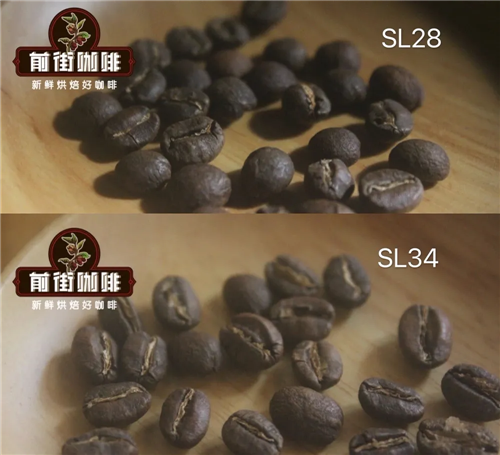
SL34
SL34 was first chosen as a "French missionary" (bourbon species) from the Loresho estate. However, according to Qianjie coffee search data, it is known that genetic testing of this variety of coffee beans has confirmed the gene group of iron pickup, and its plant performance characteristics are also similar to those of iron pickup. Therefore, it is considered that the selection of SL34 comes from iron pickup. Because SL34 is close to the tin card variety, the coffee bean looks long, oval and flat on the side.
Ruiru11
Ruiru appeared after SL28 and SL34, and Qianjie learned that it was in the 1970s, when Ruiru began to try to cultivate different CBD and rust-resistant varieties. The result is Ruiru11, which was released in the 1980s. High yield, CBD and antirust properties seem to be the solution to all coffee production problems in Kenya.
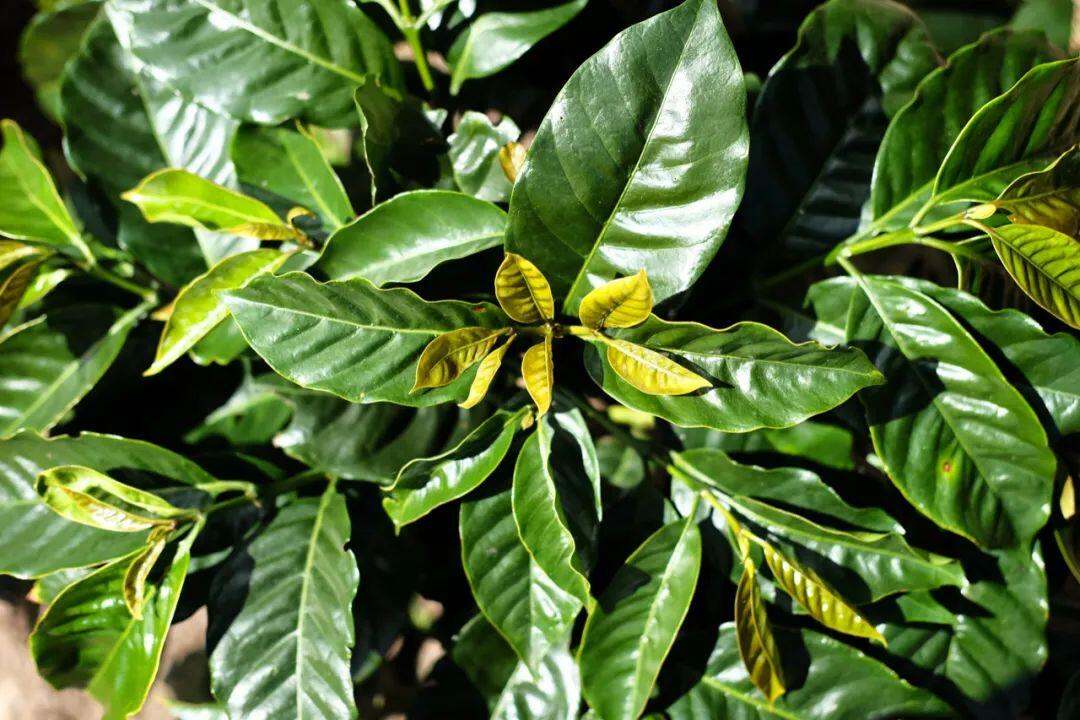
Batian
The Batian variety was launched by the Coffee Research Institute (CRI) on September 8, 2010. it is also the latest variety offered in Kenya. It is a further experiment based on lessons learned from Ruiru11. Genetically speaking, it is essentially selected from the backcross between SL28 and SL34, and is closer to SL28 than Ruiru 11. Thus, this eliminates the elements of the problematic Robusta varieties of coffee beans, thus improving the quality of cup testing.
The above is the relevant information about Kenyan coffee varieties sorted out by Qianjie Coffee. From above, we can know that Kenyan coffee varieties play a major role in determining the flavor of Kenyan coffee beans, because assuming that other varieties of coffee trees are planted in Kenya, it is very likely that the flavor of coffee beans planted does not have the characteristics of black plum and sour virgins. For example, the Panamanian Emerald Manor Rose Summer Coffee in the front street coffee shop has the original flavor different from the entire Panamanian coffee producing area, because this variety of coffee beans have a pleasant flower and fruit aroma.
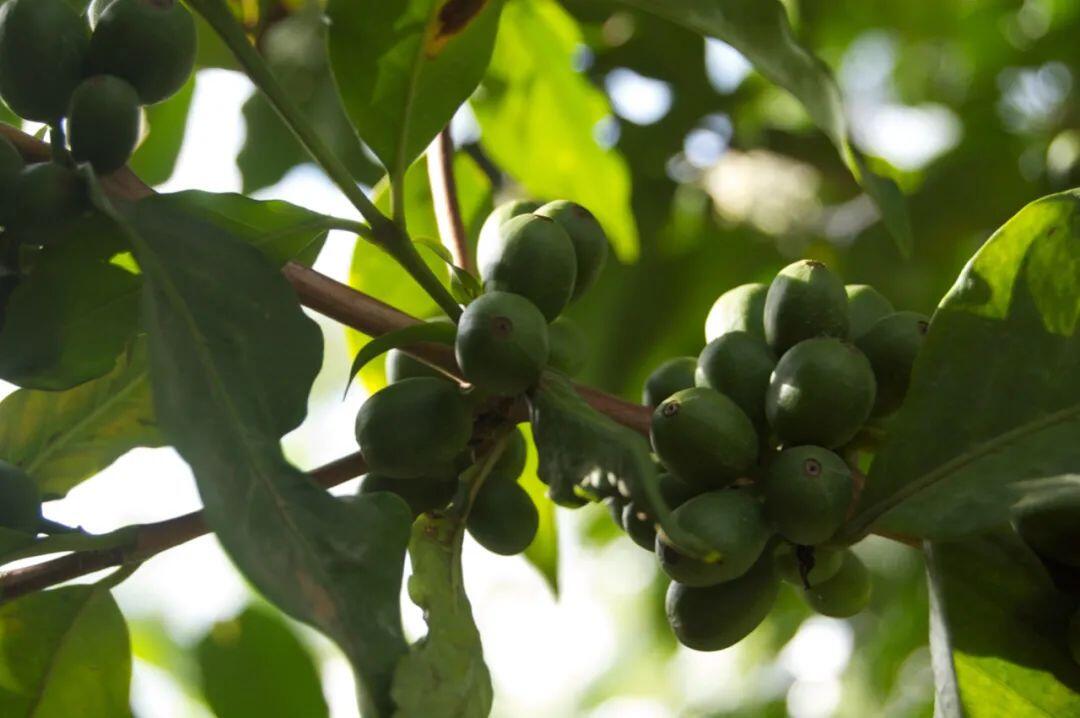
Kenyan coffee treatment method
Secondly, Qianjie Coffee believes that Kenya's unique treatment also magnifies the flavor of black plum and virgin fruit of Kenny coffee beans, which sublimates the flavor of Kenyan coffee beans. And this treatment is K72 double washing treatment.
K72 water washing treatment process: after ripe coffee and cherries are washed, peeled, dry fermented for 24 hours, washed, dry fermented again for 24 hours, washed, dry fermented again for 24 hours, and so recycled to achieve 72 hours of strong fermentation, after washing, soak in a clean sink for one night, and start drying in the sun field the next morning. Because the fermentation time is as long as 72 hours, it is called K72.
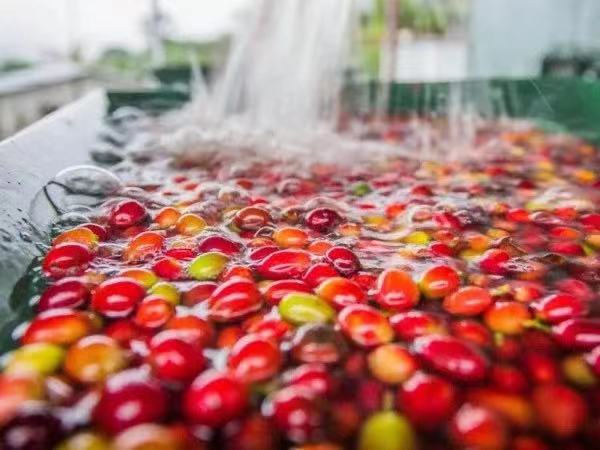
How much coffee beans are roasted in Kenya?
In addition, the degree of roasting will also affect the flavor and taste of coffee beans, this is because only after roasting can stimulate the flavor of coffee beans, different roasting will make coffee beans show a different flavor.
So roasting is to maximize the potential of coffee flavor, but a bad roasting will destroy coffee raw beans, so Qianjie coffee can even be said to be the finishing touch for coffee raw beans. What degree of baking is suitable for Kenyan coffee beans?
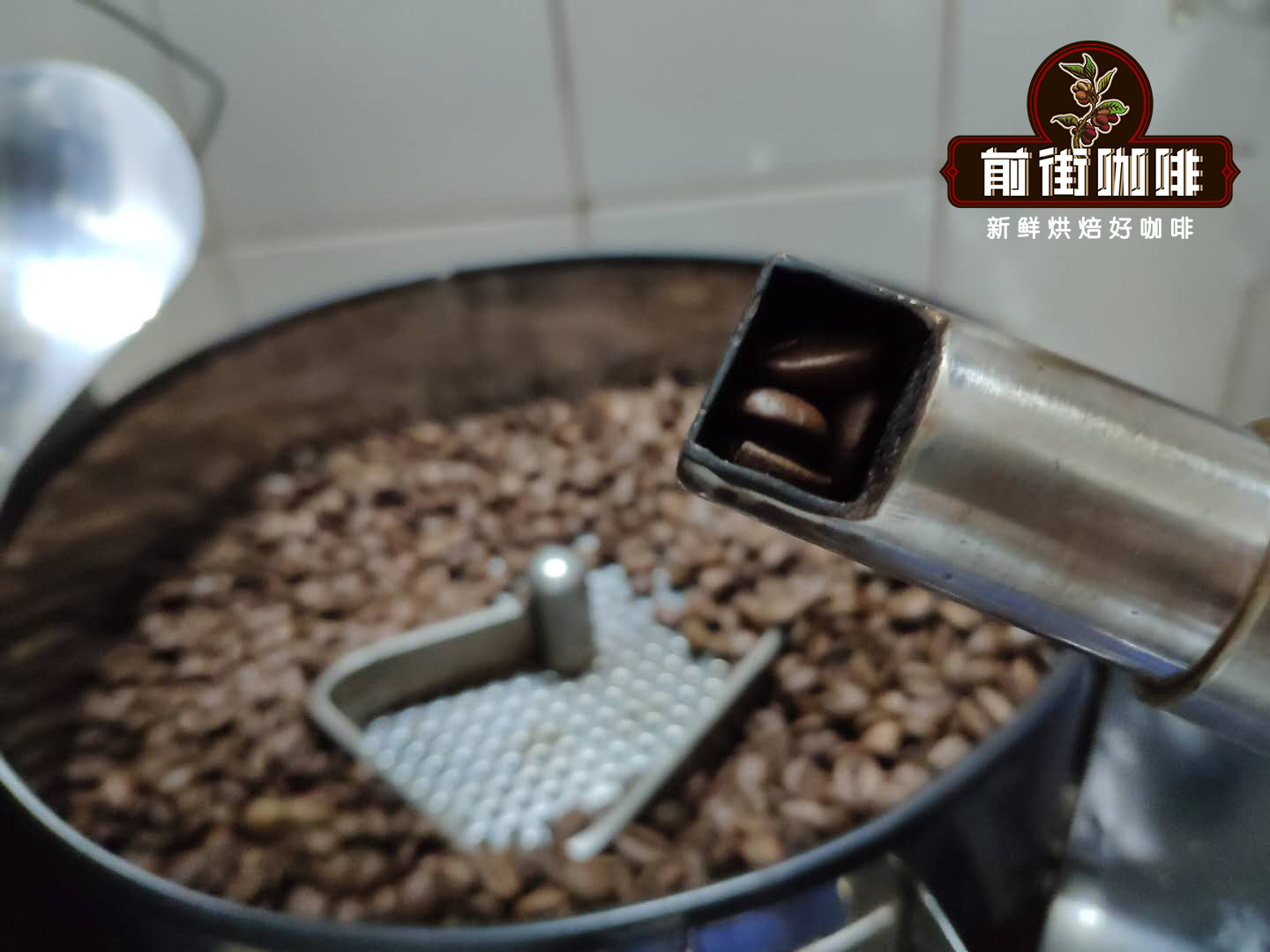
First of all, coffee lovers who have known the roasting degree all know that the roasting degree of coffee beans is mainly divided into light, medium and depth, which is mainly distinguished by the color of the roasting degree of coffee beans. generally, the darker the color means that the flavor of this coffee bean will be more mellow, on the contrary, the lighter the color will show the rich acidity in the coffee beans, while the flavor of Kenyan coffee beans is characterized by pleasant and bright acidity. In order to highlight its acidity, Qianjie coffee bakers will use shallow roasting to deal with it.
Next, Qianjie Coffee will introduce the flavor characteristics and baking curve of Kenya's Azaria coffee beans to everyone.
Front street coffee Kenya Azaria coffee beans
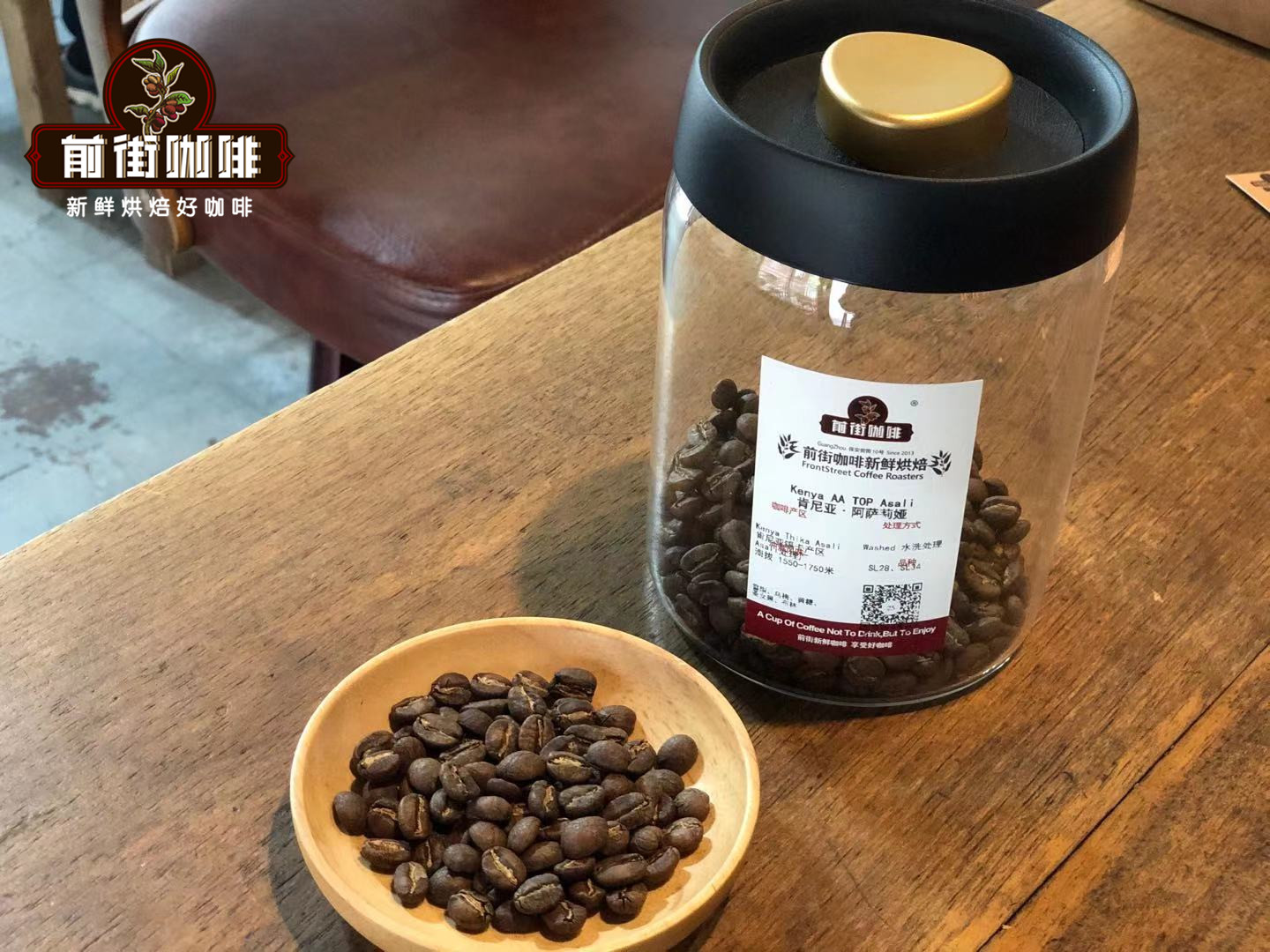
Country: Kenya
Production area: Asali (Honey processing Plant)
Altitude: 1550-1750m Variety: SL28,SL34
Treatment method: 72 hours washing treatment
Flavor: Sydney, black plum, brown sugar, virgin fruit, Brin
"Qianjie Coffee Baking parameters sharing"
Kenya Asaria coffee beans: this bean is full and round, and the front street coffee mentioned above that in order to fully show its bright and mellow acidity, the front street coffee is roasted lightly.
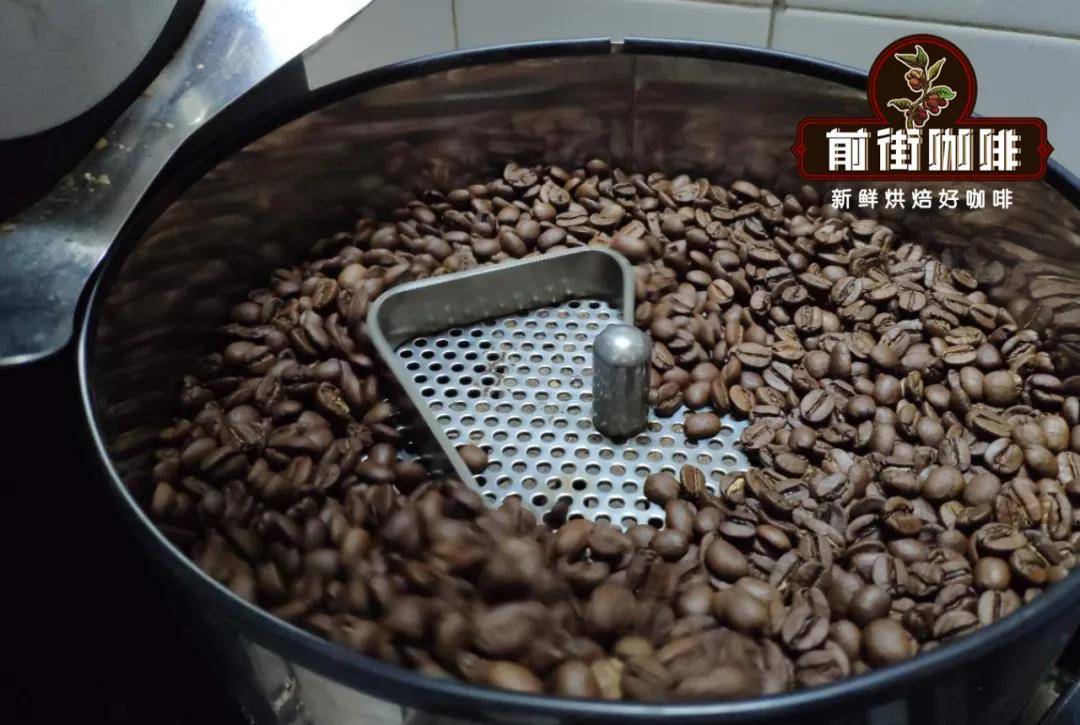
Yangjia 800N semi-direct fire, bean dosage 480g: furnace temperature to 160 degrees Celsius into the pot, throttle open 3, firepower 120. Temperature recovery point: 1. 39%. 28 ". The temperature rises to 130 degrees and the throttle opens 4. Bake to 6: 00 ", the temperature is 154.6 degrees, the bean surface turns yellow, the smell of grass disappears completely, and the dehydration is completed. When the bean surface appears ugly Hu wrinkles and black markings, the smell of toast obviously changes to the smell of coffee, which can be defined as a prelude to an explosion. At this time, it is necessary to listen carefully to the sound of the explosion point, to 9: 28 ", the throttle remains the same, and the development time of the explosion is 2: 20". Put the pot at 193.8 degrees.
Suggestion on brewing coffee in Qianjie
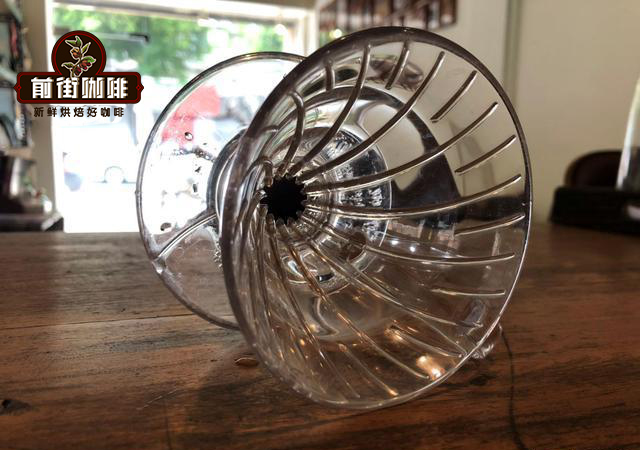
Filter cup: V60 or cake cup
Water temperature: 90-91 ℃
Powder / water ratio: 1:15
Degree of grinding: fine grinding (the pass rate of Chinese standard No. 20 screen is 80%)
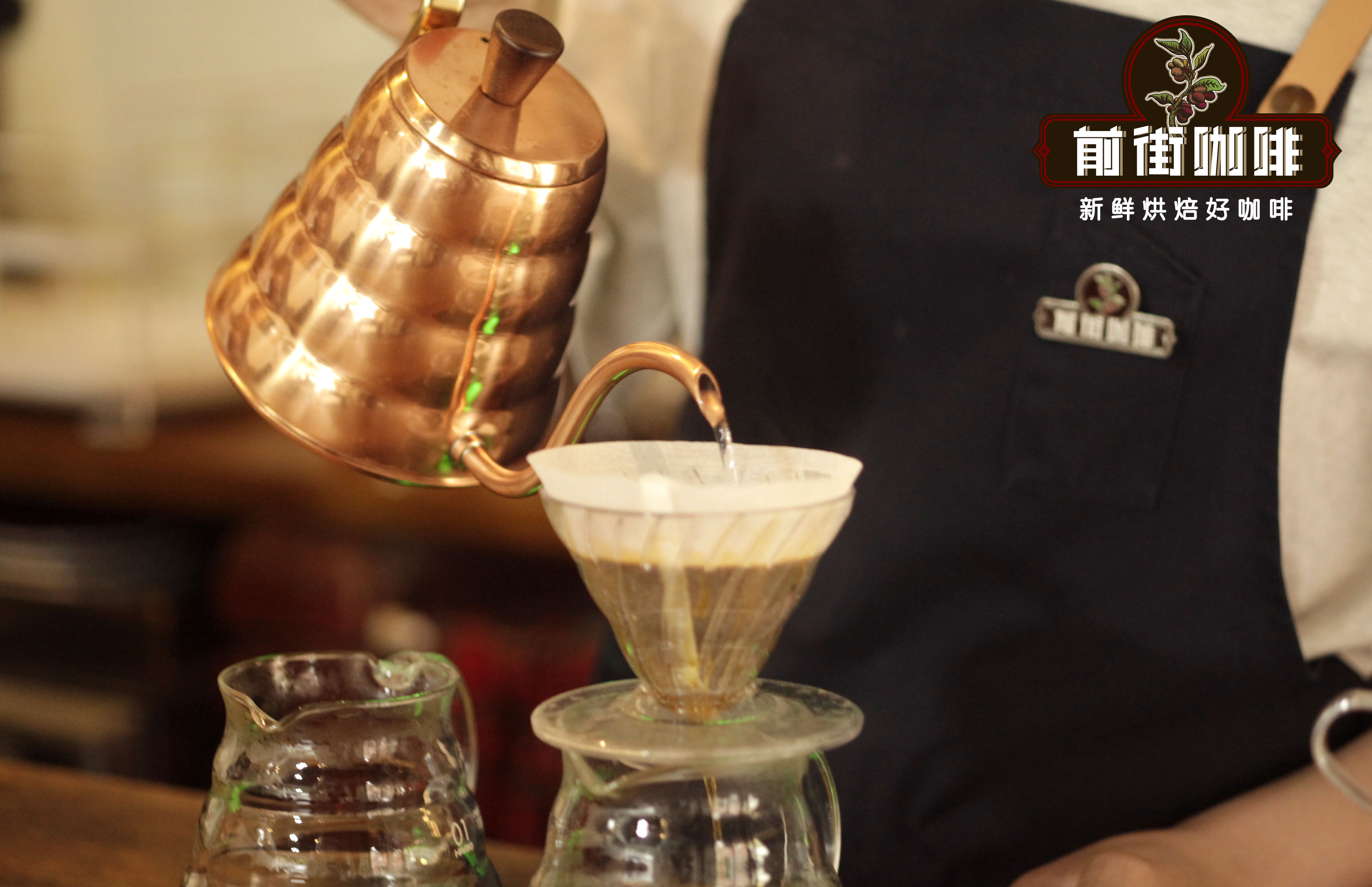
Flushing and cooking technique: segmented extraction.
Steam with 30 grams of water for 30 seconds, small water flow around the circle to 124 grams for sectional injection, when the water level is about to expose the powder bed, continue to inject water to 228 grams to stop injection, and so on when the water level drop is about to expose the powder bed, remove the filter cup, (the time of steaming starts) the extraction time is 1 minute 39 percent 55 ".
Azaria coffee bean flavor: wet aroma with ripe tomato and flower aromas, imported virgin fruit and black plum flavor, bright acidity, clean and rich taste, outstanding middle sweetness, juicy, raspberry and yellow sugar on the finish, and green tea aroma.
For more boutique coffee beans, please add private Qianjie coffee on Wechat. WeChat account: kaixinguoguo0925
Important Notice :
前街咖啡 FrontStreet Coffee has moved to new addredd:
FrontStreet Coffee Address: 315,Donghua East Road,GuangZhou
Tel:020 38364473
- Prev
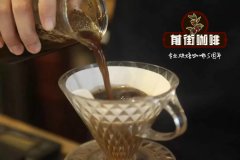
Introduction of Brazilian Coffee with soft and Sweet Flavor Pedra Azul State Park Coffee
Professional coffee knowledge exchange more coffee bean information please follow the coffee workshop (Wechat official account cafe_style) besides the largest, Brazil is also the most colorful coffee producer. With an area of 8.5 million square kilometers, Brazil is the fifth largest country in the world. There are 26 federal states, of which 15 are growing coffee: Acre,Bahia,Cear,EspritoSanto,Gois
- Next
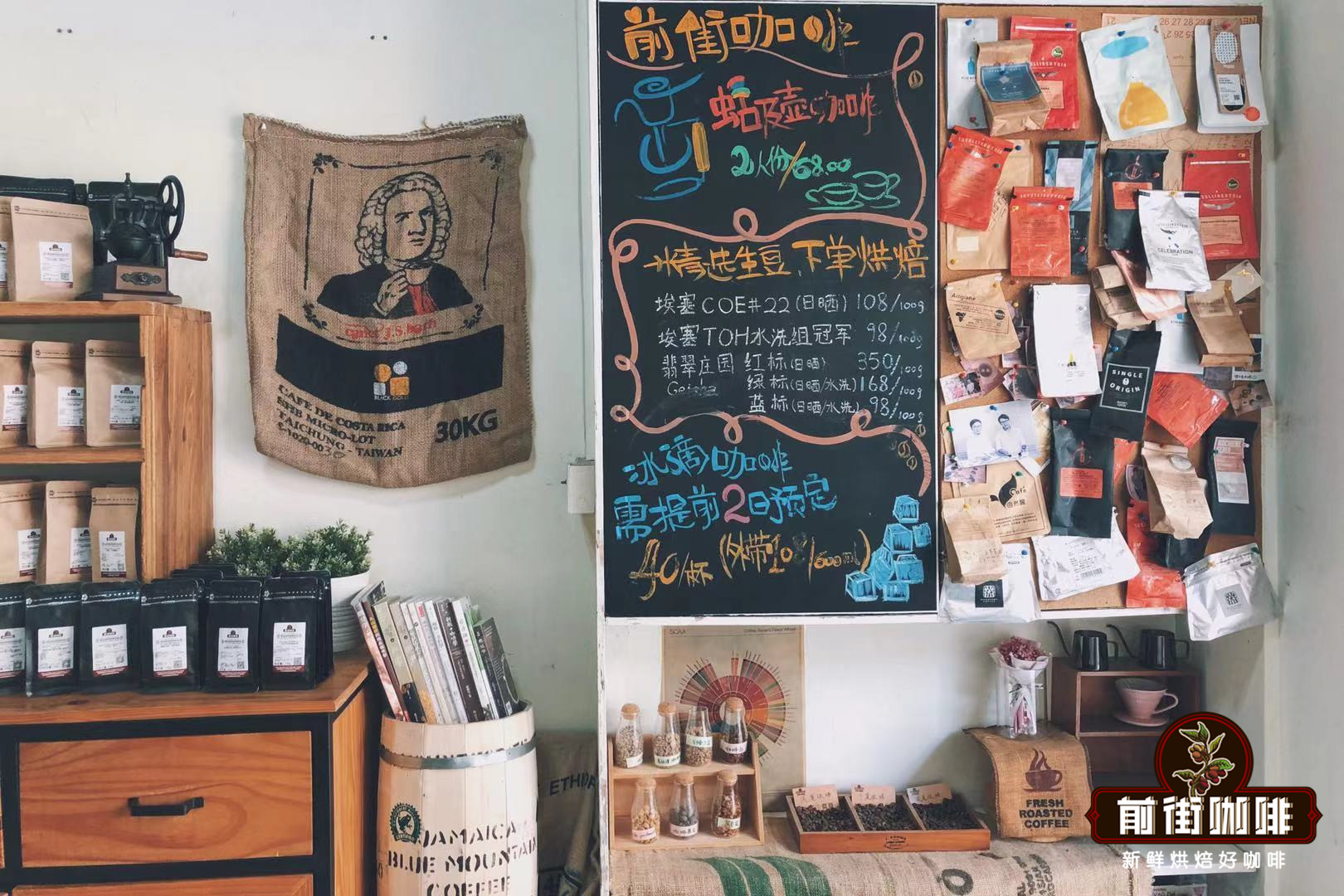
Panamanian Poket Water washing Butterfly Rose Summer Coffee Bean Flavor difference between hand flushing Panama Rose Summer
Coffee workshop (Wechat official account cafe_style) official coffee production in Panama began in the early twentieth century and was grown in the westernmost valleys and mountains of the country, mostly Arabica coffee beans with a mild taste, producing 82% Arabica and 18% Robusta varieties respectively. Plant 2300 above sea level
Related
- Detailed explanation of Jadeite planting Land in Panamanian Jadeite Manor introduction to the grading system of Jadeite competitive bidding, Red bid, Green bid and Rose Summer
- Story of Coffee planting in Brenka region of Costa Rica Stonehenge Manor anaerobic heavy honey treatment of flavor mouth
- What's on the barrel of Blue Mountain Coffee beans?
- Can American coffee also pull flowers? How to use hot American style to pull out a good-looking pattern?
- Can you make a cold extract with coffee beans? What is the right proportion for cold-extracted coffee formula?
- Indonesian PWN Gold Mandrine Coffee Origin Features Flavor How to Chong? Mandolin coffee is American.
- A brief introduction to the flavor characteristics of Brazilian yellow bourbon coffee beans
- What is the effect of different water quality on the flavor of cold-extracted coffee? What kind of water is best for brewing coffee?
- Why do you think of Rose Summer whenever you mention Panamanian coffee?
- Introduction to the characteristics of authentic blue mountain coffee bean producing areas? What is the CIB Coffee Authority in Jamaica?

